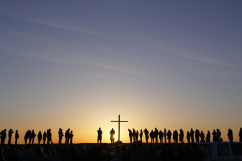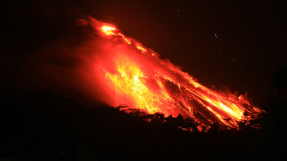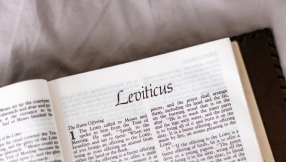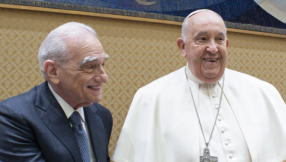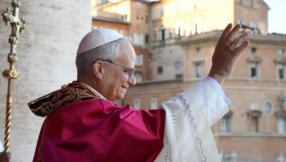
Elijah's ministry begins when he proclaims a drought on the land. After his great victory over the prophets of Baal on Mount Carmel, he climbs to the top of the mountain, puts his face between his knees, and sends his servant to look for clouds over the sea (1 Kings 18:41-46). Eventually one as small as a man's hand appears. Elijah sends word to Ahab to expect a thunderstorm; sure enough, the skies grow black, and the rain falls.
Putting your head between your knees is an unusual posture for prayer. But he's acting out what he wants God to do; he's making the shape of a cloud.

It's when his servant sees the tiny wisp of vapour on the horizon that Elijah warns Ahab there's a storm coming. This wasn't a lucky bit of weather forecasting. Elijah takes the promise for the thing itself. Contained within the cloud as small as a man's hand is all the potential of that God-sent hurricane. It was a paradox: tiny, but at the same time absolutely huge, with an unimaginable power.
Jesus told stories about the Kingdom of Heaven which emphasised how small it looked, but how much it had the power to achieve. It was a mustard-seed, or a tiny piece of dough. It looked like nothing at all, but it could change the world.
We might find ourselves in a church situation, or a personal situation, where there are very few signs of hope. But even the smallest good thing is an emblem of the Kingdom of God, and a token of his power – the cloud like a man's hand which foreshadows his blessing. May God give us the faith to believe that he'll fulfill his promise.












